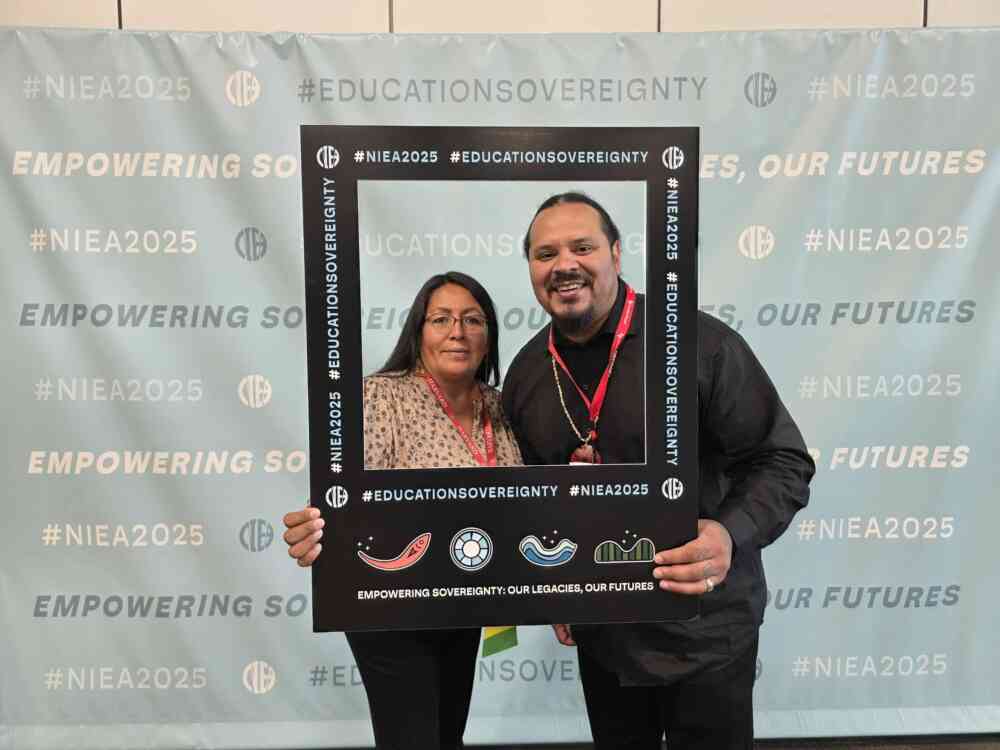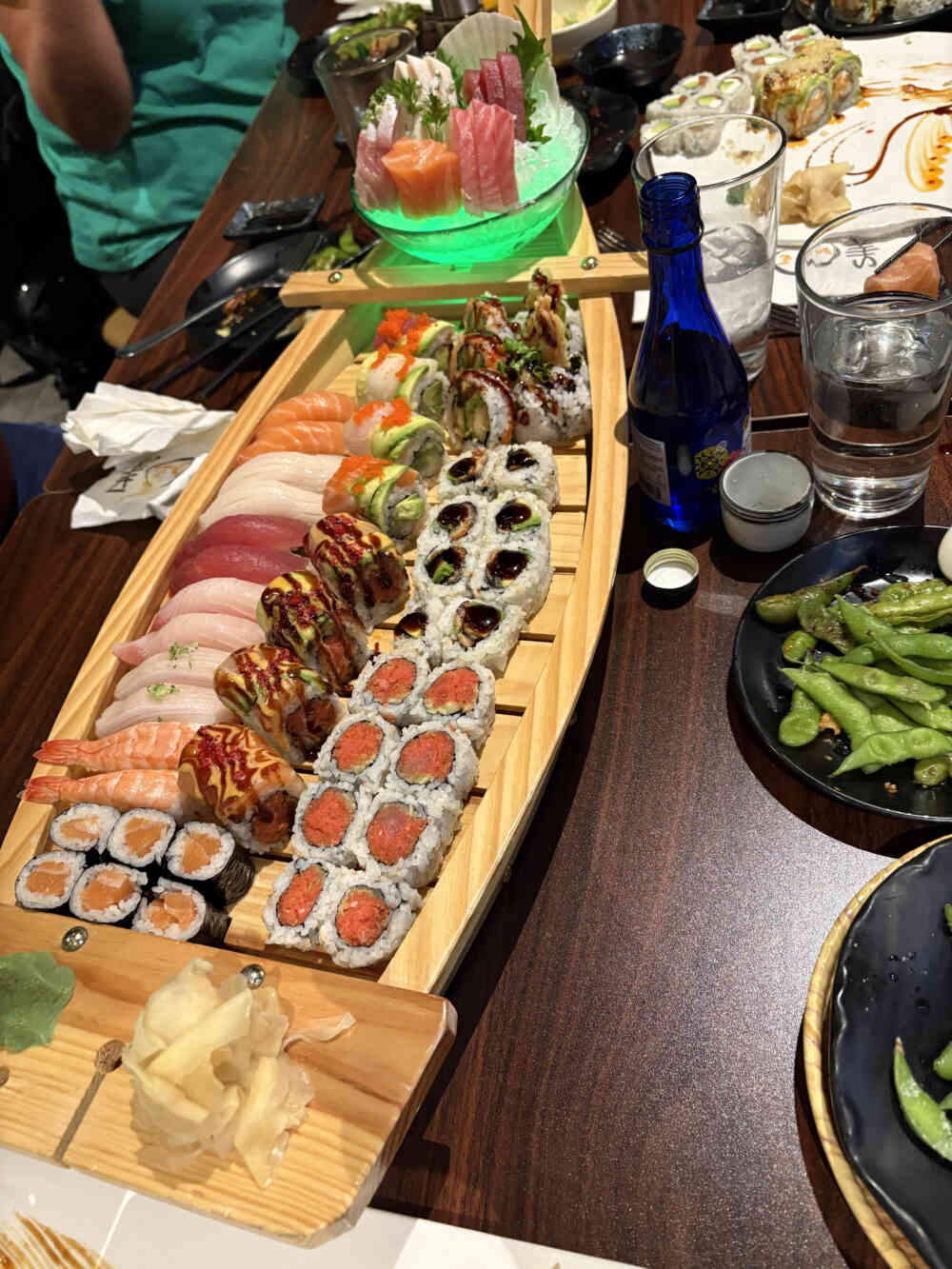Cordero Holmes Reflects on His Experience at the National Indian Education Association Conference
S-ke:g Taṣ, wescij m-wui.
Añi 'an 'ab ce:gig Cordero Ba'ag Holmes, 'ab amjed Hikìwañ Cekṣañ, Tohono O'odham jeweḍ.
Good day, everyone, my name is Cordero Eagle Holmes, and I come from the Hikiwan District on the Tohono O’odham Nation.
I currently reside in Phoenix, Arizona, and am in my second year of graduate studies at Arizona State University, where I am pursuing a dual master’s degree in Public Administration and Criminology and Criminal Justice.
For the past two years, I have had the honor of serving as an Urban Institute STAR Fellow, where I’ve contributed to the Family-Friendly Tribal and Rural Campuses project, an initiative in collaboration with the American Indian College Fund dedicated to strengthening educational environments for Indigenous students with caregiving responsibilities and their families.
Gathering in Spokane
This year, I attended the National Indian Education Association (NIEA) conference in Spokane, Washington, where the theme, “Empowering Sovereignty: Our Legacies, Our Futures,” celebrated and advanced Native education. Each year, NIEA gathers Native educators, students, and tribal leaders to share knowledge, build community, and advocate for the success of Native students through keynotes, workshops, a trade show, and cultural events.

As soon as I stepped out of the airport, I was immediately met with Spokane’s crisp air, green trees, and cool weather, a beautiful contrast to the desert heat back home. But it wasn’t just the landscape that stood out to me; it was the spirit of the people I encountered.
The locals were warm and welcoming, and the food was incredible. I even tried raw sushi for the first time. Inside the convention center, educators, students, and community leaders filled the space with stories, laughter, and a shared commitment to uplifting Indigenous communities. Every session felt like a lesson, and every hallway conversation an exchange of wisdom.

No single moment stood above the rest; they were all powerful. From dialogues on decolonizing curricula to heartfelt stories of language revitalization, I witnessed how Indigenous education continues to be an act of resistance, love, and hope.
Though I left before the Friday night powwow, the conference itself felt ceremonial, a gathering that nourished both spirit and purpose.
The Work That Brought Me There
My contribution to this year’s NIEA theme, Empowering Sovereignty: Our Legacies, Our Futures, centered on early insights from the Family-Friendly Tribal and Rural Campuses project. I had the honor of sharing this work alongside Jonathan Breaker from the College Fund, Amie Tryon from Salish Kootenai College, and Roger Mustache from Lac Courte Oreilles Ojibwe University.
Before discussing our goals, it’s important to understand the numbers. About 3.1 million undergraduates in the United States are raising dependent children, roughly 18 percent of all undergraduates. At community and technical colleges, that figure increases to about 22 percent. But at tribal colleges and universities (TCUs), that number nearly doubles to 43 percent.
When we talk about “family-friendly” practices at TCUs, we’re not describing a specialized initiative; we’re talking about nearly half the student body. These are parents, caregivers, and families who carry not only their children’s futures, but also the futures of their communities with them into the classroom.
The Heart of the Work
Family-Friendly Tribal and Rural Campuses has three main goals:
- Share the Family-Friendly Campus Toolkit, a resource designed to help colleges understand and support student parents, with TCUs to help them strengthen supports for caregivers. I’ve had the privilege of working with Elizabeth Osche, one of the toolkit’s creators, whose insight inspires this work.
- Gather feedback from tribal and rural colleges to make the toolkit more culturally grounded and responsive. We’ve done this by engaging in dialogue with faculty, staff, and students at Lac Courte Oreilles Ojibwe University, Salish Kootenai College, and Turtle Mountain College.
- Elevate the practices already thriving within tribal colleges, those rooted in Indigenous ways of nurturing students and their families, to ensure that these strategies inform broader educational policy and practice.
As someone who believes that education should strengthen, not separate, our family and community bonds, I see the Family-Friendly Tribal and Rural Campuses project as a bridge between policy and culture, one that helps institutions reflect Indigenous values of kinship, reciprocity, and collective care. And it connects to my own experience taking classes at my TCU, Tohono O’odham Community College.
Carrying the Lessons Home
As the plane lifted from Spokane, I realized what I was bringing home from NIEA was far more than notes or resources. It was a renewed sense of responsibility. Family-friendly campuses aren’t only about child care or flexible schedules, they affirm Indigenous ways of learning, living, and belonging.
To be present among Indigenous scholars and leaders from across Turtle Island filled me with pride and gratitude. It was a powerful reminder of our shared strength, of what it means to gather in purpose and presence. As John Trudell said in Smoke Signals, it was a good day to be Indigenous. Every day is a good day to be Indigenous, but these days burned with a special intensity.
Education, at its best, should reflect who we are. For tribal communities, that means centering family, honoring ancestors, and building systems that help our people thrive without forcing them to choose between being students and being who they are.
“Empowering Sovereignty” also deepened my perspective as a scholar. Research is more than data points and findings. Research is a tool for empowerment when it’s guided by community voice and cultural integrity.
Looking Forward
As I continue my studies at ASU, I carry the lessons from Spokane. Family-Friendly Tribal and Rural Campuses is not just about improving institutions, it’s about honoring our relationships between students, families, and the lands that sustain us.
So, I’ll end with a question, one I invite you to hold and reflect on:
What would a truly family-friendly campus look like in your community?
When we imagine it together, we shape it into being, and we all feel supported.